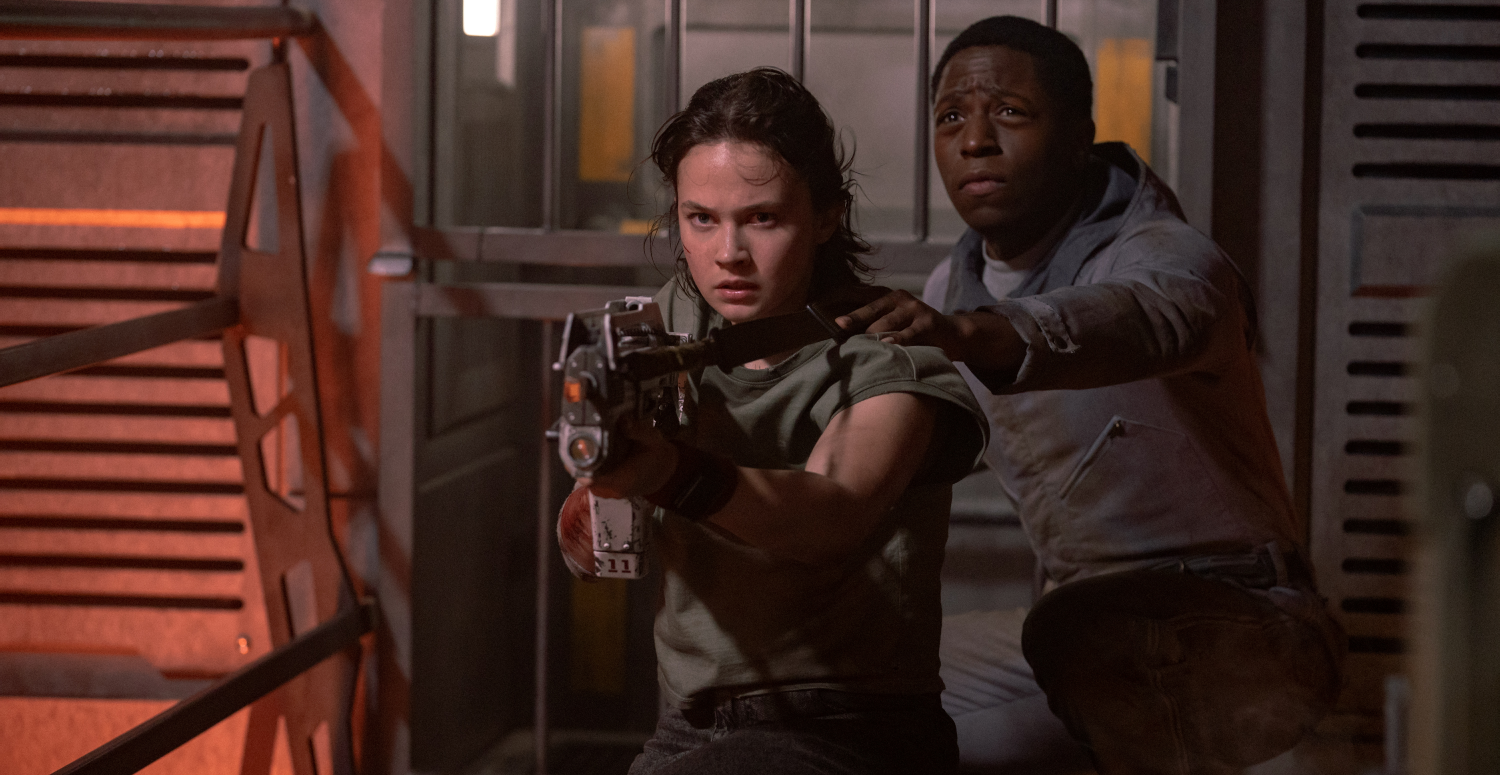Alien : Romulus
Rising Star – BAFTA
Outstanding Photoreal Model – VESA
2024

FR EN
Authentique retour aux sources de l’univers créé par Ridley Scott, « Alien : Romulus » constitue une bouffée d’oxygène pour qui a dévoré la célèbre série de longs-métrages de science-fiction. Tout y est : les interminables couloirs métalliques et obscurs, les éclairages furtifs et incertains, l’incompréhension puis l’angoisse croissante de se confronter à l’hideuse réalité, la quête de survie qui parfois entre en contradiction avec certains intérêts personnels, mais aussi des personnages archétypaux. L’intrigue reprend en effet presque méthodiquement un scénario en quatre actes, similaire au film originel, avec certes des acteurs convaincants (Cailee Spaeny et, plus encore, David Jonsson) et des rebondissements intéressants, mais manque peut-être un peu d’horrifique ou d’innovation, avec finalement peu de tension ou de surprise.
En revanche, si l’on omet ces attentes ou même ce regard de fan, ce film de Fede Álvarez brille dans ce qu’il propose : de la sombre science-fiction à “petit” budget (80 millions de $), où les décors – mention spéciale à la colonie morne et oppressante –, le son, l’ambiance et l’héroïne nous poussent à réfléchir sur la véritable nature de la vie et de l’univers. Le tout en se raccrochant parfaitement au monde cruel de nos chers xénomorphes, toujours aussi fascinants.
Forty-five years after the release of the first installment in a saga that became mythical and legendary, “Alien” returns to its roots – somewhat lost over the decades and the movies – with “Alien: Romulus”. The year is 2142, twenty years after the frightening events experienced by the iconic Lieutenant Ellen Ripley: a group of slave-like inhabitants of an inhospitable mining colony decide to leave their hellish planet for an (apparently) other terraformed heaven. To do so, they reach an abandoned but operational space station, orbiting close to their colony’s outer rings, in order to take over its stasis chambers and travel, serenely asleep, for nine years to Yvaga. But the station harbors other mysterious and terrifying residents: xenomorphs and their offspring …
“Alien: Romulus” is truly a throwback to the roots of Ridley Scott’s universe and a breath of fresh air for anyone who has consumed the famous sci-fi franchise. Everything is there: the endless metal and dark corridors, the elusive and dim lighting, the lack of understanding and then the growing anguish of coming face to face with the hideous reality, the quest for survival that sometimes clashes with certain personal interests, but also the archetypal characters. The plot almost methodically replicates a four-act script similar to the original film, with compelling actors (Cailee Spaeny and, even more so, David Jonsson) and interesting twists and turns, but perhaps lacks a little horror or innovation, with ultimately a little lack of tension or shock.
However, leaving aside these expectations from a fan’s point of view, Fede Álvarez’s film really shines in what it delivers: dark, relatively low-budget ($80 million) for sci-fi, where the sets – with a special tribute to the dreary, oppressive colony – the sound, the atmosphere and the heroine all make us reflect on the true nature of life and the universe. All the while, the cruel world of our beloved xenomorphs remains as fascinating as ever.

